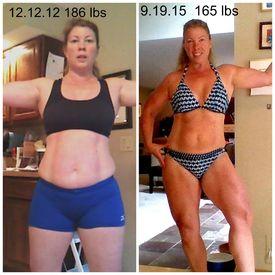Carrageenan - thoughts?

msarro
Posts: 2,748 Member
Hey everyone. After doing a fair bit of research, my fiancee and I have actively been trying to cut carrageenan out of our food. The issue is, the stuff is in absolutely EVERYTHING. Almond milk? It's there. Soy milk? Yup. Light salad dressing? Tada. Kid's chocolate milk? You betcha. Baby formula? Of course!
Now, luckily we have managed to work around it in those cases (just switched back to normal milk), but it seems to show up in more and more things.
What are your thoughts?
For those who aren't familiar, carageenan is an extract from red seaweed which is used to stablize liquids and keep them from separating (because Americans are too lazy to shake a container I guess). There is a significant body of evidence showing that it not only promotes the creation of tumors in animals, but also can cause gastrointestinal distress. A good summary of the body of research is available on wikipedia here: http://en.wikipedia.org/wiki/Carrageenan#Health_concerns
Not conclusive, but at the same time, I don't see a reason to put it in everything. I'm not so lazy that I can't just shake a bottle before using it.
Now, luckily we have managed to work around it in those cases (just switched back to normal milk), but it seems to show up in more and more things.
What are your thoughts?
For those who aren't familiar, carageenan is an extract from red seaweed which is used to stablize liquids and keep them from separating (because Americans are too lazy to shake a container I guess). There is a significant body of evidence showing that it not only promotes the creation of tumors in animals, but also can cause gastrointestinal distress. A good summary of the body of research is available on wikipedia here: http://en.wikipedia.org/wiki/Carrageenan#Health_concerns
Not conclusive, but at the same time, I don't see a reason to put it in everything. I'm not so lazy that I can't just shake a bottle before using it.
0
Replies
-
I didn't know that carrageenan was anything I should even be questioning.... I guess I have my next project of research to do!
As far as it being in everything... I do find that rather annoying when there is a product I disagree with or seems to be rather unhealthy and it just starts slowly making it's way into everything! I noticed it with the fake sugars and now that I've found out about palm oil (it's dangers to the environment, not that it's unhealthy) I've been keeping an eye out for it and it's in everything!0 -
I try to avoid anything processed basically. I make our salad dressings, ketchup, BBQ sauce, make almond milk & coconut milk (cheaper than the store bought).0
-
What's wrong with carrageenan?0
-
I try to avoid anything processed basically. I make our salad dressings, ketchup, BBQ sauce, make almond milk & coconut milk (cheaper than the store bought).
I would *love* to make almond milk, but around here almonds are so expensive ($6-8 per pound when raw) that it just doesn't make sense. I can get milk for 3 and change. The recipes I found for almond milk always call for a ratio of 1 cup almonds to 2 cups water, which would mean about 1 qt of almond milk per pound of almonds. That's just too much cash
We do make our own yogurt and cheeses, though.0 -
I buy the Simple Truth Almond Milk....not ont he ingredients list. But it does contain other things that make me wonder what they are.
 This isn't easy, is it? 0
This isn't easy, is it? 0 -
^^ This. Minus the making of almond and coconut milk. We use raw cow milk. I just try to avoid "food additive" ingredients that are used to stabilize food. Food shouldn't need to a long shelf life IMHO!I try to avoid anything processed basically. I make our salad dressings, ketchup, BBQ sauce, make almond milk & coconut milk (cheaper than the store bought).0 -
I have IBS.
I thought for ages I had a gluten intolerance.
Then I was having a week or two of REALL YBAD FLARE UPS.
A friend of mine said " Watch out for carrageenan."
Turns out one of the big ingredients in a protein bar I was eating was carrageenan. And in my cottage cheese, and other stuff.
I quit it cold turkey, and avoid it like crazy now.
Haven't had any major flare ups since. Things are very close to back to normal.0 -
I have IBS.
I thought for ages I had a gluten intolerance.
Then I was having a week or two of REALL YBAD FLARE UPS.
A friend of mine said " Watch out for carrageenan."
Turns out one of the big ingredients in a protein bar I was eating was carrageenan. And in my cottage cheese, and other stuff.
I quit it cold turkey, and avoid it like crazy now.
Haven't had any major flare ups since. Things are very close to back to normal.
But what do you do if you have IBS and are allergic to milk as well? If you can't use soy or almond, you are kind of screwed! My Mom has it really bad and I am always trying to find things she can do.0 -
If you can find almonds cheaper anywhere (I get mine at Costco), the one cup almonds/2 cups milk makes more of a cream than a milk. I get 6-8 cups of almond milk by adding water to the original two cups when I'm done. You can also use the left over almond meal in foods. It turned out to be quite a bit less expensive than I originally thought (if you can find almonds for cheaper than $6-8).
Edited to add: The longer you soak the almonds, the thicker the milk will be. I soak for 48 hours.0 -
I have IBS.
I thought for ages I had a gluten intolerance.
Then I was having a week or two of REALL YBAD FLARE UPS.
A friend of mine said " Watch out for carrageenan."
Turns out one of the big ingredients in a protein bar I was eating was carrageenan. And in my cottage cheese, and other stuff.
I quit it cold turkey, and avoid it like crazy now.
Haven't had any major flare ups since. Things are very close to back to normal.
But what do you do if you have IBS and are allergic to milk as well? If you can't use soy or almond, you are kind of screwed! My Mom has it really bad and I am always trying to find things she can do.
not all milk substitutes have that garbage in it I think silk brand does not0 -
SO MUCH FOR THE MYTHS
CONSIDER THE FACTS ON CARRAGEENAN FOR A CHANGE
Q. What is Carrageenan??
A. Carrageenan is a naturally-occurring seaweed extract. It is widely used in foods and non-foods to improve texture and stability. Common uses include meat and poultry, dairy products, canned pet food, cosmetics and toothpaste.
Q. Why the controversy?
A. Self-appointed consumer watchdogs have produced numerous web pages filled with words condemning carrageenan as an unsafe food additive for human consumption. However, in 70+ years of carrageenan being used in processed foods, not a single substantiated claim of an acute or chronic disease has been reported as arising from carrageenan consumption. On a more science-based footing, food regulatory agencies in the US, the EU, and in the UN’s Food and Agriculture Organization/World Health Organization (FAO/WHO) repeatedly review and continue to approve carrageenan as a safe food additive.
Q. What has led up to this misrepresentation of the safety of an important food stabilizer, gelling agent and thickener?
A. It clearly has to be attributed to the research of Dr. Joanne Tobacman, an Associate Prof at the University of Illinois in Chicago. She and a group of molecular biologists have accused carrageenan of being a potential inflammatory agent as a conclusion from laboratory experiments with cells of the digestive tract. It requires a lot of unproven assumptions to even suggest that consumption of carrageenan in the human diet causes inflammatory diseases of the digestive tract. The objectivity of the Chicago research is also flawed by the fact that Dr Tobacman has tried to have carrageenan declared an unsafe food additive on weak technical arguments that she broadcast widely a decade before the University of Chicago research began.
Q. What brings poligeenan into a discussion of carrageenan?
A. Poligeenan (“degraded carrageenan” in pre-1988 scientific and regulatory publications) is a possible carcinogen to humans; carrageenan is not. The only relationship between carrageenan and poligeenan is that the former is the starting material to make the latter. Poligeenan is not a component of carrageenan and cannot be produced in the digestive tract from carrageenan-containing foods.
Q. What are the differences between poligeenan and carrageenan?
A. The production process for poligeenan requires treating carrageenan with strong acid at high temp (about that of boiling water) for 6 hours or more. These severe processing conditions convert the long chains of carrageenan to much shorter ones: ten to one hundred times shorter. In scientific terms the molecular weight of poligeenan is 10,000 to 20,000; whereas that of carrageenan is 200,000 to 800,000. Concern has been raised about the amount of material in carrageenan with molecular weight less than 50,000. The actual amount (well under 1%) cannot even be detected accurately with current technology. Certainly it presents no threat to human health.
Q. What is the importance of these molecular weight differences?
A. Poligeenan contains a fraction of material low enough in molecular weight that it can penetrate the walls of the digestive tract and enter the blood stream. The molecular weight of carrageenan is high enough that this penetration is impossible. Animal feeding studies starting in the 1960s have demonstrated that once the low molecular weight fraction of poligeenan enters the blood stream in large enough amounts, pre-cancerous lesions begin to form. These lesions are not observed in animals fed with a food containing carrageenan.
Q. Does carrageenan get absorbed in the digestive track?
A. Carrageenan passes through the digestive system intact, much like food fiber. In fact, carrageenan is a combination of soluble and insoluble nutritional fiber, though its use level in foods is so low as not to be a significant source of fiber in the diet.
Summary
Carrageenan has been proven completely safe for consumption. Poligeenan is not a component of carrageenan.
Closing Remarks
The consumer watchdogs with their blogs and websites would do far more service to consumers by researching their sources and present only what can be substantiated by good science. Unfortunately we are in an era of media frenzy that rewards controversy.
Additional information available:
On June 11th, 2008, Dr. Joanne Tobacman petitioned the FDA to revoke the current regulations permitting use of carrageenan as a food additive.
On June 11th, 2012 the FDA denied her petition, categorically addressing and ultimately dismissing all of her claims; their rebuttal supported by the results of several in-depth, scientific studies.
If you would like to read the full petition and FDA response, they can be accessed at http://www.regulations.gov/#!searchResults;rpp=25;po=0;s=FDA-2008-P-03470
This discussion has been closed.
Categories
- All Categories
- 1.4M Health, Wellness and Goals
- 398.2K Introduce Yourself
- 44.7K Getting Started
- 261K Health and Weight Loss
- 176.4K Food and Nutrition
- 47.7K Recipes
- 233K Fitness and Exercise
- 463 Sleep, Mindfulness and Overall Wellness
- 6.5K Goal: Maintaining Weight
- 8.7K Goal: Gaining Weight and Body Building
- 153.5K Motivation and Support
- 8.4K Challenges
- 1.4K Debate Club
- 96.5K Chit-Chat
- 2.6K Fun and Games
- 4.8K MyFitnessPal Information
- 13 News and Announcements
- 21 MyFitnessPal Academy
- 1.6K Feature Suggestions and Ideas
- 3.2K MyFitnessPal Tech Support Questions








